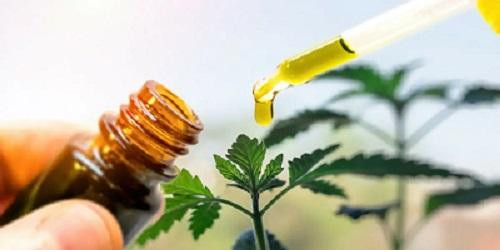In recent years, hemp has emerged from the shadow of its infamous cousin, marijuana, to become a celebrated plant in its own right, particularly in the wellness and nutrition industries. Central to this rise is hemp seed oil, a product praised for its nutritional benefits and versatility. However, confusion often arises in distinguishing hemp from marijuana despite their significant differences. This article aims to clarify the benefits of hemp seed oil and explain the critical distinctions in the hemp vs marijuana debate.
What is Hemp Seed Oil?
Hemp seed oil is derived from the seeds of the hemp plant, Cannabis sativa, which is the same species that gives us marijuana. However, the hemp variety is specifically bred to have low to negligible levels of THC (tetrahydrocannabinol), the psychoactive compound that causes the 'high' associated with marijuana. Hemp seed oil is extracted through cold-pressing hemp seeds, resulting in a rich, nutty-flavored oil that is high in essential fatty acids, protein, and various vitamins and minerals.
Nutritional Benefits of Hemp Seed Oil
The oil is highly regarded for its nutritional content, particularly its optimal ratio of omega-6 to omega-3 fatty acids, which supports heart health and skin vitality. Hemp seed oil is also a good source of linoleic acid, gamma-linolenic acid, and antioxidants, making it a staple in the diets of those seeking to enhance their health naturally. It's commonly used in salad dressings, smoothies, and as a cooking oil, although it is not suitable for high-temperature cooking.
Hemp vs Marijuana: Understanding the Difference
The hemp vs marijuana confusion primarily stems from their botanical relationship, both being derivatives of the species Cannabis sativa. The distinction lies in their chemical composition and usage. While marijuana contains high THC levels and is generally used recreationally or medicinally to induce psychoactive effects, hemp features high levels of CBD (cannabidiol) and minimal THC, making it ideal for creating health products, textiles, and more.
Industrial and Environmental Impact of Hemp
Beyond health, hemp is renowned for its environmental benefits and a wide range of industrial applications. It requires less water and pesticides than traditional crops, and every part of the plant is usable — for food, fiber, building materials, and biofuel. This versatility makes hemp a sustainable choice in various sectors, promoting a more sustainable agriculture model.
Legal Aspects and Market Growth
Understanding the legal distinctions in the hemp vs marijuana debate is crucial, especially for consumers and businesses. In many regions, hemp cultivation and use in products are legal, provided it contains less than 0.3% THC, aligning with federal regulations in places like the United States. This legal status has led to a boom in the hemp industry, with a diverse range of products hitting the market, from hemp seed oil to CBD supplements.
Conclusion
hemp seed oil offers significant health benefits without the psychoactive effects associated with marijuana, making it an appealing option for health enthusiasts worldwide. For those interested in exploring the variety of hemp-based products, justcbdstore.com provides a trusted source, ensuring high-quality, third-party-tested options to enhance your health regimen. The distinction between hemp vs marijuana is vital for informed consumption and legal compliance, empowering users to make choices that align with their health needs and values. Embracing hemp seed oil could mean tapping into a sustainable, beneficial resource that supports both personal wellness and environmental health.
For More Info Visit Our Website:-
full spectrum hemp vd CBD isolate
question to ask before buying CBD?





Comments